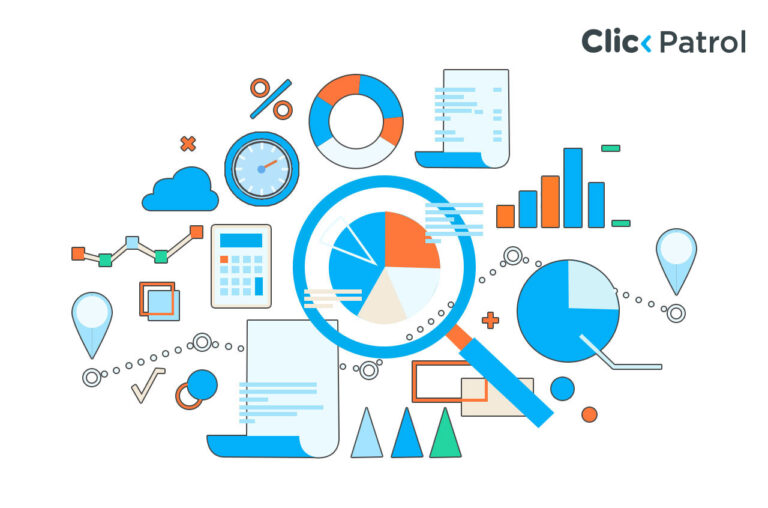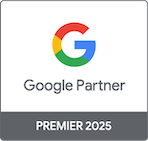
Top PPC optimization tools in 2025: Maximize your Ad performance & ROI
Abisola Tanzako | Apr 21, 2025

Table of Contents
Advertisers using optimization tools achieve up to a 30% better ROI than those relying on manual adjustments (Statista, 2024).
Without the right optimization tools, companies risk overspending, targeting the wrong audience, and failing to maximize their return on investment (ROI).
This guide examines the top PPC optimization tools, their key features, and how to utilize them effectively to enhance performance.
PPC optimization tools explained: Features, benefits, and best options
PPC campaigns require continuous monitoring and adjustments to remain effective. Optimization tools help businesses:
- Reduce unnecessary ad spend
- Improve targeting precision
- Enhance ad quality and relevance
- Increase click-through rates (CTR) and conversions
Key functions of PPC optimization tools
To better understand how PPC optimization tools work, let us break down their primary functions:
- Keyword research and optimization: The first step toward achieving PPC success is selecting the most suitable keywords. Examples of tools are SpyFu, Google Keyword Planner, and SEMrush.
- Automated bid management: Modifying bids for multiple keywords and ad groups is time-consuming. Examples of Tools: WordStream, Skai (Kenshoo), and Optmyzr
- A/B testing and tracking ad performance: These tools monitor cost-per-acquisition (CPA), conversion rates, and ad engagement. Examples of these tools are VWO, Google Optimise, and AdEspresso.
- Click fraud detection and prevention: PPC advertisers frequently encounter fraudulent clicks from competitors, bots, or automated scripts, resulting in wasted ad spend. Examples include Fraud Blocker, ClickCease, and ClickPatrol.
- Competitor analysis: Knowing competitors’ actions helps refine your PPC strategy. Examples include iSpionage, SpyFu, and SEMrush.
- Landing page and conversion rate optimization (CRO): A poorly optimized landing page will result in few conversions, even if an advertisement receives clicks. Examples are Unbounce, Instapage, and Google PageSpeed Insights
- Multi-platform campaign management: Companies that utilize PPC advertising across multiple platforms (such as Google Ads, Facebook Ads, LinkedIn Ads, etc.) require tools that simplify and consolidate campaign management in one centralized location. Examples include Adzooma, Marin Software, and Skai (formerly Kenshoo).
Comparing the best PPC optimization tools: Which one is right for you?
Below are some of the top PPC optimization tools, along with their standout features and benefits.
1. Google Ads Editor:
Google Ads Editor is a free, offline tool that allows advertisers to bulk edit campaigns, keywords, and ad copies before uploading changes to Google Ads.
Key features:
- Bulk editing capabilities to make multiple campaign changes at once.
- Offline campaign management, allowing edits without internet access.
- Advanced filtering and sorting to analyze ad performance faster.
- Customizable rules and alerts for better campaign monitoring.
- It supports multiple accounts, making it ideal for agencies managing multiple clients.
Best for managing large-scale Google Ads campaigns efficiently.
2. ClickPatrol:
Click fraud can drain PPC budgets through fraudulent clicks from bots or competitors. ClickPatrol helps detect and block invalid clicks, ensuring genuine potential customers see your ads.
Key features:
- Real-time fraud detection using AI and machine learning.
- IP blocking to prevent recurring fraudulent clicks.
- Detailed click analysis to identify suspicious behavior.
- Custom fraud filters for different industries.
- Automatic refund requests to Google for invalid clicks.
Best for preventing click fraud and protecting ad spend.
3. SEMrush:
SEMrush is an all-in-one digital marketing tool that helps advertisers with PPC campaign planning, keyword discovery, and competitor analysis.
Key features:
- Competitor PPC analysis to see which keywords and ads competitors are bidding on.
- Ad Builder will create and test Google Ads copies.
- Negative keyword suggestions to eliminate wasteful ad spend.
- PPC performance tracking with detailed analytics.
Best for keyword research, competitor analysis, and PPC insights.
4. Optmyzr:
Optmyzr is designed to help PPC managers optimize bids, analyze campaign performance, and automate tedious tasks across Google Ads, Bing Ads, and other platforms.
Key features:
- AI-powered bid adjustments to maximize conversions.
- One-click campaign optimizations to quickly improve performance.
- Budget monitoring to prevent overspending.
- Ad performance tracking with automated suggestions.
- A/B testing for ads to determine the best-performing creatives.
Best for automating PPC bid management and performance optimization.
5. SpyFu:
SpyFu is a competitive intelligence tool that helps advertisers analyze which keywords their competitors are bidding on, how much they spend, and which ads perform best.
Key features:
- PPC keyword spying to discover competitor keyword strategies.
- Historical PPC ad tracking to see long-term trends.
- Ad copy analysis to find the most successful ads in your industry.
- Negative keyword suggestions to refine ad targeting.
- SEO and PPC reporting for performance analysis.
Best for competitor keyword research and PPC ad strategy insights.
6. AdEspresso:
AdEspresso is a user-friendly PPC optimization tool designed to simplify ad creation, automate testing, and improve campaign performance across multiple platforms.
Key features:
- Multi-platform management for Google, Facebook, and Instagram Ads.
- A/B testing to find the best-performing ad variations.
- Automated rules for adjusting bids and budgets.
- Performance reporting dashboards for easy data visualization.
- Audience segmentation tools to improve targeting.
Best for managing and optimizing Facebook, Instagram, and Google Ads.
7. WordStream PPC Advisor:
WordStream PPC Advisor is designed to help businesses optimize their Google Ads and Bing Ads campaigns without needing extensive PPC expertise.
Key features:
- Automated bid adjustments based on performance.
- Ad text optimization suggestions for higher engagement.
- Conversion tracking tools to measure campaign success.
- Keyword recommendations for improving ad targeting.
- Custom performance reports to track progress over time.
Ideal for small businesses and agencies seeking a user-friendly PPC management tool.
Best practices for PPC optimization
Even with the best PPC optimization tools, businesses should follow best practices to ensure maximum results:
- Conduct thorough keyword research: Choosing the right keywords is crucial for targeting the right audience. Use tools like Google Keyword Planner and SEMrush to find high-performing, relevant keywords.
- Optimize ad copy and landing pages: Ensure your ad copy is compelling and directly aligns with the user’s intent. Landing pages should be optimized for conversions, with clear CTAs and a seamless user experience.
- Implement A/B testing: Regularly test different ad variations to determine which versions perform best. Experiment with headlines, descriptions, and call-to-action (CTA) elements.
- Monitor and adjust bids strategically: Use automated bidding strategies to optimize ad spending while maintaining profitability. Google’s Smart Bidding and Optmyzr’s bid automation can help.
- Leverage retargeting: Retargeting helps reconnect with users who previously interacted with your site but did not convert.
The key to PPC success
PPC advertising can drive significant business growth only if campaigns are well-optimized. Advertisers risk high costs, poor targeting, and wasted ad spending without the right tools.
Businesses can automate bid adjustments, track performance, prevent fraud, and enhance audience targeting by utilizing PPC optimization tools such as Google Ads Editor, ClickPatrol, SEMrush, and Optmyzr.
The right tool depends on budget, campaign goals, and platform compatibility. When combined with best practices such as regular audits, A/B testing, and fraud monitoring,
PPC optimization tools can help businesses achieve higher conversions, lower costs, and better ROI.
FAQs
Q. 1 Which PPC tool is best for preventing click fraud?
If you are dealing with fraudulent clicks, ClickPatrol and ClickCease are among the best tools. They detect bot traffic, block invalid clicks, and assist advertisers in requesting refunds from ad platforms, such as Google Ads.
Q. 2 Can PPC optimization tools improve conversion rates?
Yes! Many tools include A/B testing, audience targeting, and landing page optimization features that help improve conversion rates. Tools like Unbounce and Optmyzr help optimize landing pages and test ad variations.
Q. 3 Can I use multiple PPC optimization tools simultaneously?
Yes! Many advertisers use a combination of tools to manage different aspects of PPC optimization. For example, you might use SEMrush for keyword research, ClickPatrol for fraud prevention, and Optmyzr for bid management.





